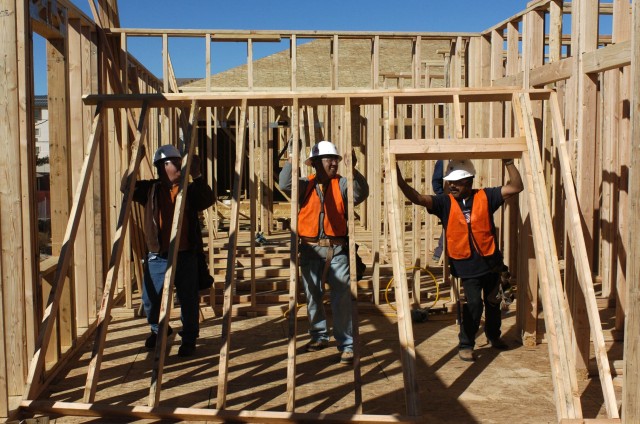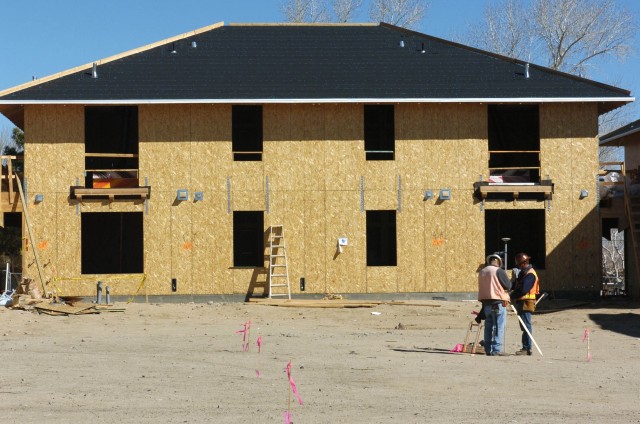WASHINGTON (Army News Service, Jan. 29, 2008) -- As part of the Residential Communities Initiative, the Army is privatizing housing for Soldiers and their families, and a pilot program under RCI is also providing billeting for unaccompanied NCOs and officers.
At five installations -- Fort Irwin, Calf.; Fort Drum, N.Y.; Fort Stewart, Ga.; Fort Bragg, N.C.; and Fort Bliss, Texas -- the Army's commercial partners under RCI are building privatized apartments for unaccompanied Soldiers.
On Fort Irwin, 200 new apartments fill a gap in the commercial housing market off post, said Ivan Bolden, the Army's public and private initiatives and competitive sourcing division chief for RCI.
"Before we begin, we look out into the economy to see if there is something that is adequate, that meets the standard and is affordable," said Bolden. "If there is nothing there, like at Fort Irwin, then you can do some pilot programs like this one."
The apartments at Fort Irwin are occupied by single Soldiers -- sergeant first class and above -- that would normally be allowed to move off post on their own. Those Soldiers pay rent to the private owners of the apartments using their basic allowance for housing.
Deals for privatized apartments at Fort Drum, Fort Bragg and Fort Stewart all closed in the last seven months, and the privatization deal at Fort Bliss is expected to close this year. By the end of 2009, the Army expects to have some 1,400 one- and two-bedroom apartments available under the program.
Currently, the privatized apartments for unaccompanied Soldiers is part of a pilot project, similar to how RCI began in the mid-1990s. Bolden said any further expansion of the program would require an assessment of its initial success and further approval by the Army.
"We will look at how the program goes, do a study, and probably at some point in a couple of years go back to the Army and show them the results and the lessons learned. Then we will make recommendations," he said.
Under RCI, private companies lease the land military housing is on, and then buy the homes. Those companies then remodel the homes or tear them down and build new ones. The homes are then occupied by Soldiers and their families who use their basic allowance for housing to pay the rent.
The Army has been privatizing homes under RCI since about 1998, Bolden said.
The program helps the Army avoid the cost of replacing inadequate housing and at the same time eliminates housing deficits when there are gaps in the commercial housing market.
"We realized we had about a $7-billion backlog of maintenance and repair costs in Army housing," Bolden said. "And with the different challenges in the Army, you can only do so much with the budget. Unfortunately, commanders had to fight for base operations dollars. When you measure that against beans and bullets, or training, you know we didn't come up as high on the priority list."
The Army is currently on track to meet its goal of privatizing some 88,000 Army family housing units -- representing about 99 percent of all Army family housing in the United States -- by 2016.
"At the end of 2007, we had about 35 to 37,000 homes left that are deemed inadequate," said Bolden. "We'll be out of that by 2016. Right now we've got over 13 homes a day coming online, and those are brand new homes."




Social Sharing